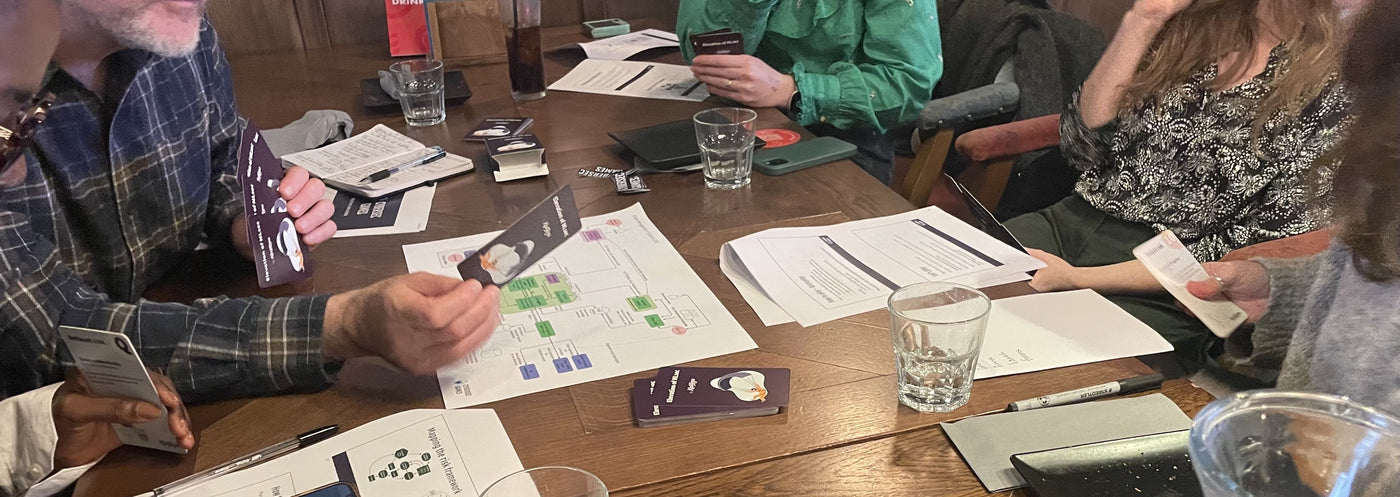At CyberSec Games, we believe games are one of the most powerful ways to explore complex topics. They work because they draw people in, encourage collaboration without pressure, and spark real conversations. Physical games are the gold standard as they not only get the message across, they help people take ownership of the challenge.
Bring cybersecurity and AI risk awareness into your team through a highly engaging, hands-on game session. In this private workshop, your team will play our Elevation of MLSEC game, designed to simulate realistic threat modelling for AI and machine learning systems. Participants will work collaboratively on a shared architecture, exploring where vulnerabilities arise in product, code, and QA, and how they can be mitigated.
What your team will gain
- A deeper understanding of how AI systems can fail or be attacked
- Practical insight into security issues in AI/ML workflows
- Increased team alignment on security mindset and language
- A physical MLSEC card deck for your team to use internally after the workshop
Booking details
This is an exclusive private session for teams (minimum 5 participants). It is a paid session, with pricing determined by the number of attendees and the chosen format (virtual or in-person).
What to expect at the session
Interested in booking a session for your team?
Interested in a session for your team? Get in touch. We can run it online or in person, depending on your location, and we’ll work with you on dates and details to see if it’s the right fit.
Contact form
Frequently Asked Questions
Who is this session for?
Who is this session for?
It’s ideal for security professionals, developers, architects, and anyone curious about making threat modelling more engaging and collaborative.
How much does a session cost?
How much does a session cost?
Pricing depends on the number of attendees and the delivery format (virtual or in-person). We’ll provide a clear quote once we know your team’s requirements.
Do I need any prior experience with Elevation of Privilege or threat modelling?
Do I need any prior experience with Elevation of Privilege or threat modelling?
No. We’ll walk you through the rules, STRIDE threat categories, and gameplay before starting.
What do I need for the session?
What do I need for the session?
We’ll send each player a physical Elevation of Privilege deck and the hotel booking system architecture diagram in advance. You’ll also need access to Zoom and your deck ready for use.
What’s the architecture scenario we’ll be threat modelling?
What’s the architecture scenario we’ll be threat modelling?
We’ll use a hotel booking system based on AWS, chosen because it’s a familiar application space for many, with just the right level of complexity for an engaging threat modelling session.
How will the cards be dealt for online play?
How will the cards be dealt for online play?
We use the Croupier app to deal random hands ahead of time. Each player receive their hand by email and pick out the matching cards from their deck ready for the session.
Who keeps score?
Who keeps score?
Either a CyberSec Games facilitator or a nominated person from your team will act as scorekeeper. If it’s someone from your team, we’ll brief them before the session.
What happens after the game?
What happens after the game?
We’ll have a group discussion on what was discovered, challenges to adopting the game in your workplace, and practical ways to overcome them
